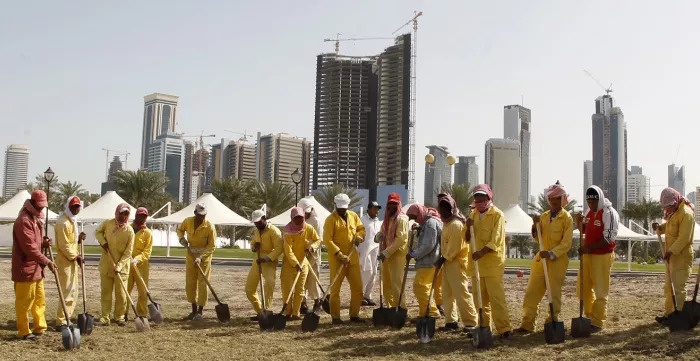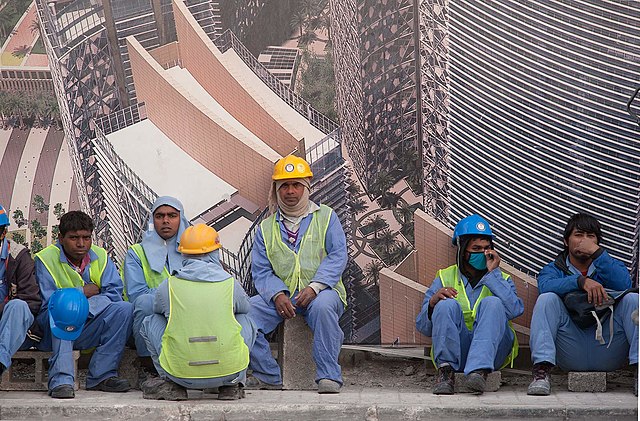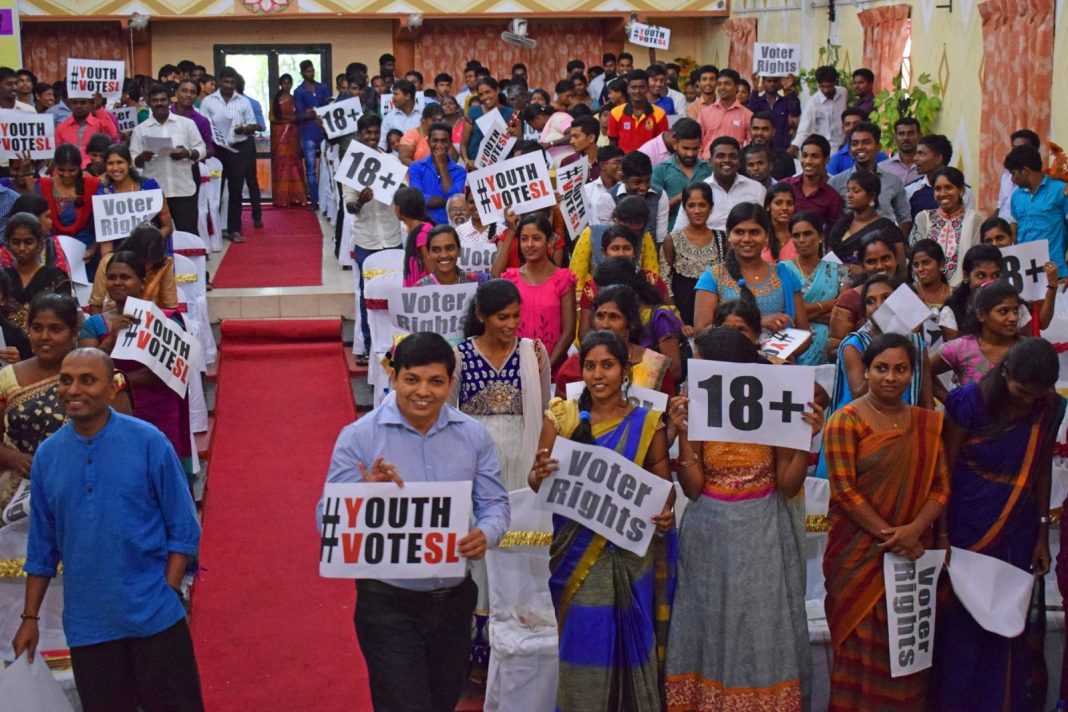By Pamodi Waravita
COLOMBO – Seventeen million people are eligible to vote on September 21 to elect their next president. Exactly one tenth of this population – or 1.7 million voters are migrant workers. Unless they travelled home, they have no opportunity to cast their votes. Despite the island’s remittance economy, Sri Lanka’s migrant worker community is still to be facilitated to vote from their current location.
“In my 20 years as a migrant worker, I have never voted during a single election. During COVID-19, when migrant workers were trying to return home amidst border closures, some politicians called us “COVID bombs,” but when the economy crashed in 2022, they wanted our dollars to save the country,” says Nilu Athukorala, 40, a domestic worker based in Kuwait.
At the age of 18, Athukorala left her village near Kurunegala, a district in North Western Sri Lanka. She obtained her national identity card with the intention of going abroad.
“I have a son in Sri Lanka. I have sent every cent I earned back home. It was only last year that I opened a bank account for myself. I have sent my earnings home for 20 years, but have never depended on any government welfare scheme,” Athukorala told the Center for Investigative Reporting (CIR).
Remittances reached over US$ 1,500 million (approximately 452 billion LKR) in the first quarter of 2024, according to the Central Bank of Sri Lanka (CBSL). Yet, over a million Sri Lankans working abroad will not be voting this year too. Nearly a million of them are working in the Middle East on short-term contracts with plans to return home unlike those in the Global North where obtaining permanent residency remains an aspiration.
Senarath Yapa, Additional General Manager (International Affairs), Sri Lanka Bureau of Foreign Employment (SLBFE), said that ahead of the September 21 Presidential Election, the bureau has received three separate requests from Qatar-based workers to facilitate them to vote.
“These requests were duly forwarded to the Election Commission through the Ministry of Labour and Foreign Employment,” Yapa told CIR.
“We have received many such requests before. This time, requests came from three worker groups,” said Saman Sri Rathnayake, Commissioner General of Elections.
There had been no satisfactory response from the authorities to the demand for facilitating voting from abroad.
Migrant workers, especially those working in the Middle East as low-skilled workers face serious problems, their plight is largely seen as a distant struggle. However, when the economy crashed, it was the migrant workers the government called upon to help revive the economy.
Votes with no value
Athukorala argues that migrant workers are not facilitated because politicians fear their power due to the large number of workers. “They cannot predict how we would vote and are possibly worried about having to cater to our demands. We get little or no help from the Sri Lankan authorities when we encounter problems. My calls to the embassies in 20 years have always gone unanswered,” she said.
The Centre for Working Women (CFWW) has been advocating for migrant workers’ voting rights since 1996. CFWW agrees that enabling workers to vote would exert pressure on the authorities to focus on migrant workers’ rights.
“Article 14 of the United Nations Convention on the Rights of All Migrant Workers and Members of their Families specifically refers to their voting rights. Sri Lanka ratified the Convention in 1996 but has not introduced an enabling law. Successive governments have shown no interest in enacting domestic laws to address these issues,” says Amali Kalupahana, President of the CFWW.
“Migrant workers face multiple problems in destination countries. They are abused and sometimes abandoned without help or resources. If they are facilitated to vote, them some of these issues will come to the fore and might get addressed through government-to-government labour agreements,” she says.
D.M.V. Dissanayake, an independent election analyst who has observed elections for two decades insists the non-facilitation of migrant workers to vote amounts to a violation of their fundamental rights.
“Migrant workers in the Middle East are among the most marginalised people yet they line Sri Lanka’s economy,” Dissanayake told.
Meanwhile, the three frontrunning presidential hopefuls this year have included migrant workers’ concerns in their manifestos. Samagi Jana Balawegeya (SJB) candidate Sajith Premadasa has promised to amend the election law to allow workers to vote from abroad while the National People’s Power (NPP) candidate Anura Kumara Dissanayake has pledged to safeguard the voting rights of international labour migrants Incumbent President Ranil Wickremesinghe’s manifesto promises to amend the Foreign Employment Bureau Act to provide workers with “better facilities and working conditions”.
According to Priyantha Weerasekara, AGM (Local Affairs) and Information Officer, SLBFE, the estimated number of migrant workers in the Middle East is around 878,510. However, the total number of Sri Lankan migrant workers around the world is much higher as the bureau has statistics on only those who have registered with the SLBFE.
“We base this number on the data we get from embassies or interior ministries in destination countries – that’s mainly the Middle East and low-skilled workers. We don’t have the numbers from countries like Canada and the United States,” he told CIR, explaining existing data gaps.
Weerasekara added that an estimated 300,000 migrant workers were based in the United Arab Emirates (UAE) – data also reflected in CBSL’s quarterly bulletin on labour migration. The bulletin states that even out of the 75,175 labour migrants in the first quarter of 2024, nearly 81% headed to a Middle Eastern destination.
Out-of-country voting
Chandana Sanjeewa Perera, 50, who currently works in Germany terms the lack of facilitation to vote a “human rights violation”.
“We understand the lack of funds to facilitate migrant workers to vote this time. When Gotabaya Rajapaksa ran for presidency in 2019, many workers returned to Sri Lanka to vote, but this time, workers may not do that. Although we work in countries like Australia, the US and Canada, many cannot bear the travel expenses. We prefer an online voting or similar process. Post election, we plan to exert some pressure on the new administration to address this issue,” said Perera, who had worked in the UK, Italy, and Germany.
In the 2019 Presidential Election, out of 15,992,096 registered voters, only 13,387,951 voters had cast their vote, raising questions as to why over 2.6 million eligible voters did not vote.
Manjula Gajanayake, Executive Director, Institute for Democratic Reforms and Electoral Studies (IRES) told the CIR that out-of-country voting, if facilitated, would allow registered voters living abroad including students and workers.
“Everyone has the right to vote even though some may be living abroad. The problem is facilitation. There are many advance voting systems like voting through embassies but unfortunately, Sri Lanka only uses postal voting as an advance voting mechanism. This results in the exclusion of migrant our worker population.”
Kalupahana adds that since 2008, workers have advocated for the national policy and action plan on migration for employment, finally released in 2023. The policy recognises: “The right to vote as a fundamental right of all citizens. Ensuring voting rights for migrant workers will ensure migrant workers’ voices are reflected in national politics, are recognised by the political system and their contribution to national and socio-economic development.”
To move forward, a greater contribution from migrant workers is necessary, Kalupahana added.
“We need to help organise migrant workers as a pressure group,” she said.

Concerns
Kalupahana says that the authorities should ensure any voting process does not result in vote buying and exploitation.
People’s Action for Free and Fair Elections (PAFFREL) Executive Director Rohana Hettiarachchi has similar concerns and speaks of two main problems in an out-of-country voting system.
“Our diplomatic missions are politicised and include political appointees. This means, workers may be influenced when voting, especially when they are unskilled and voiceless. It is possible to pressurise workers to vote in a certain way and use forms of threat or financial bribes. Workers may be living or working far away from the missions abroad. Can domestic workers spend and travel to embassies for voting? Will they secure leave to facilitate voting?” asks Hettiarachchi.
Hettiarachchi adds that securing the right to vote does not only involve the introduction of a new law but also a proper mechanism with checks and balances: “Measures should be taken to prevent the integrity of the electoral result being questioned. There shouldn’t be any allegations of influence from political parties once results are announced. People should be able to trust the election result and an improper mechanism to facilitate out-of-country voting may prove disastrous.”
SLBFE’s AGM (Local Affairs) Weerasekara notes that another option could be to allow migrant workers to vote for their own representative, instead of the other district representatives during the parliamentary elections.
Yet, Commissioner General of Elections, Saman Sri Rathnayake, says their hands will remain tied until the Parliament passes a law to enable migrant workers to vote from their destination states.
| Country | Estimated number of Sri Lankan migrant workers |
| United Arab Emirates (UAE) | 300,000 |
| Saudi Arabia | 180,000 |
| Qatar | 113,000 |
Source: Sri Lanka Bureau of Foreign Employment (SLBFE)





